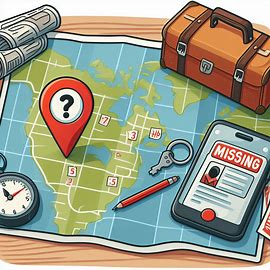Carrier pigeons
Carrier pigeons, also known as homing pigeons, have been used for centuries for communication purposes. These remarkable birds have an incredible navigational ability, allowing them to return home from long distances. The hobby of keeping and racing carrier pigeons has garnered a dedicated community of enthusiasts who enjoy training and competing with their birds.
The initial investment in this hobby can vary significantly based on the materials and birds you choose. The average material cost is about $200, which can include a loft or coop, feeding supplies, and basic veterinary care. The minimal ongoing costs are approximately $50 for essentials, while maximal costs might reach $500, especially if you are serious about racing and breeding.
Carrier pigeon enthusiasts, or fanciers, typically range in age from 10 to 70, allowing people of many demographics to participate. The average age of players in this hobby tends to be around 35 years old. Male participation is significantly higher, with research indicating that approximately 75% of carrier pigeon enthusiasts are male.
This hobby can be both solitary and social. It often starts with a single pigeon but can grow into a larger collection depending on your interest level. Most fanciers recommend a minimum of one pigeon to begin, but many enjoy maintaining a flock with a maximum of around 10 pigeons. This allows for the birds to socialize while training and improves their performance capabilities.
To get started, you need to ensure that your pigeons are properly trained to return home from various distances. Training typically begins at a young age, around 4-6 weeks when the birds familiarize themselves with their home loft. Gradually, pigeons are taken further away from home and released to fly back. This process requires patience and consistency, as the birds must learn their navigation skills through repeated practice.
The community surrounding carrier pigeons is vibrant and often involved in competitions. Events are held worldwide where fanciers race their pigeons over long distances. The birds are timed to see which can return home the fastest, showcasing their training and innate abilities. Competitions and races attract participants from different regions, creating a sense of camaraderie amongst fanciers who share the same passion.
Many people take pride in breeding carrier pigeons, selecting for traits such as speed and homing ability, along with health considerations. Breeders often attend specialized events to showcase their pigeons and engage with other enthusiastic breeders, exchanging tips and best practices for care and training.
In conclusion, the hobby of raising and racing carrier pigeons is a rewarding endeavor that blends care, training, and competition. It can appeal to a wide age range and fosters a strong sense of community among its participants. For those intrigued by birds and outdoor activities, this hobby offers a unique experience full of opportunity for personal achievement and connection with like-minded individuals.
